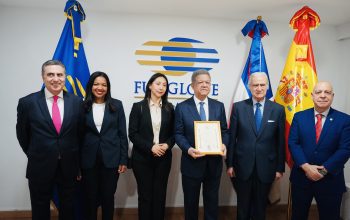news
GFDD and FUNGLODE Attended UN Panel Discussion on Intellectual Property
April 13, 2006
Global Foundation for Democracy and Development (GFDD) and its sister organization in the Dominican Republic, Fundación Global Democracia y Desarrollo (FUNGLODE), represented by Alicia Alonzo, attended a panel discussion on the analysis of the role of free/open source software and other collaborative models of knowledge production. The panel was hosted by the United Nations
University, based in New York City.
The speakers included Rishab Aiyer Ghosh, Senior Researcher, UNU-MERIT; Louis-Dominique Ouédraogo, retiring Inspector, UN Joint Inspection Unit; Tim Hubbard, Head of Human Genome Analysis, The Wellcome Trust Sanger Institute, UK; and Mr.
Tadao Takahashi principal investigator, Project Foresight ICTs – 2015 of the Center for Strategic Studies of Brazil. The panel was moderated by Jean-Marc Coicaud, Head of United Nations University in New York.
During the discussion, panelists discussed the results of several recent studies identifying the main economic benefits of using open source software – low costs, skills development (including both technical and management
skills), and increased employment opportunities for local service providers. The panelists also addressed learned experiences from Europe and Latin America. For example, Mr. Tadao Takahashi pointed that "The information technologies offer another perspective to people to create and to share cultural contents and ideas, in a world-wide scale at a very low cost. The experience in Brazil demonstrates that the diversity can awake the curiosity, produce initiatives and generate useful
contributions in the communities that improve their economies."
Tim Hubbard focused on recent developments in the field of medical research, pointing out the important role played in certain sectors of open access resources such as the Public Library of Science (PLoS). He said that in order to promote open access resources, three key elements must be faced by governments and other actors: (i) providing high speed internet access to lower the costs of
accessing data; (ii) investing more in standardization and management of available data (better databases); and (iii) establishing national centers of excellence for scientific research.
Participants came from a broad variety of backgrounds, including the private sector, universities, UN agencies and NGOs, which contributed to a very interesting debate. The overall ‘consensus’ at the end of the session was that issues in this debate are more
"grey" than a simple "binary code" of rights and wrongs.
Links related:
http://www.technologynewsdaily.com/node/2449
http://www.eurekalert.org/pub_releases/2006-04/unu-osa033006.php
http://www.firstmonday.org/issues/issue10_8/willinsky/

![]()






